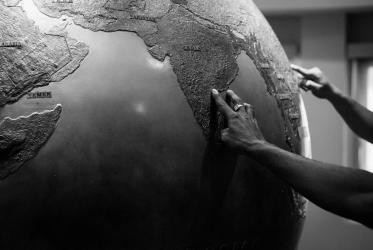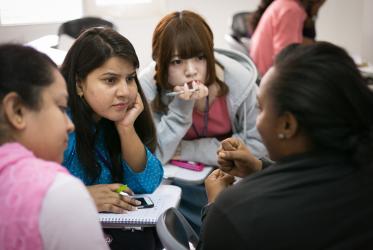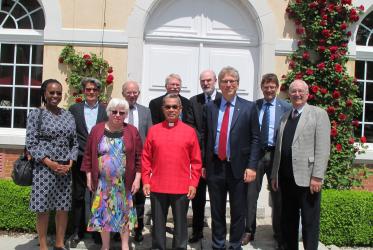Displaying 1 - 20 of 31
WCC honoured with Geneva Engage Award
01 February 2022
Peacemakers at work in Sri Lanka
29 April 2019
WCC delegation visits China
04 January 2018
G20 summit: call to pray for peace in Hamburg
07 July 2017
Plans for 2017 decided by WCC Executive Committee
01 December 2016
Grand Imam calls for collaboration against violence and poverty
06 October 2016
Panel discussion fields ideas on European identity
26 April 2016
Basel University honors Ghanian Methodist theologian
09 December 2015
WCC urges responsibility for and support to the refugees in Europe
04 September 2015










